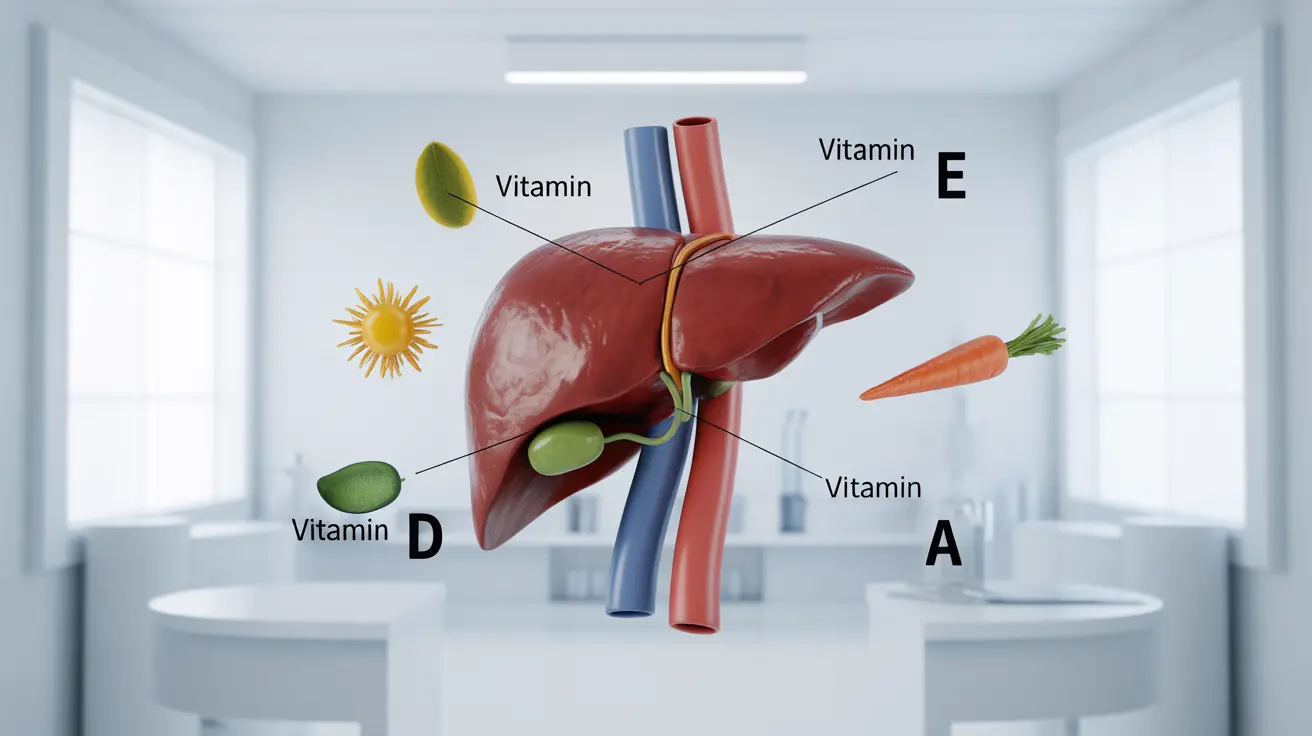Understanding the role of vitamins in liver health and repair is crucial for individuals managing liver conditions. The liver, as one of our body's most vital organs, requires specific nutrients to function optimally and maintain its natural regenerative abilities. This guide explores the most beneficial vitamins for supporting liver health and what you need to know about supplementation.
Understanding the Liver's Vitamin Requirements
The liver plays a central role in processing nutrients, including vitamins, and requires specific vitamins to perform its functions effectively. When liver disease is present, vitamin requirements often increase, while the body's ability to process and store these nutrients may be compromised.
Key Vitamins for Liver Health
Vitamin D and Liver Function
Vitamin D plays a crucial role in liver health and disease progression. Research shows that vitamin D deficiency is common in people with liver conditions and may contribute to worse outcomes. This vitamin helps regulate inflammation and immune function in the liver.
Regular monitoring of vitamin D levels is essential for patients with liver disease, as supplementation may need to be adjusted based on individual needs and disease severity.
Vitamin E Benefits
Vitamin E is a powerful antioxidant that can help protect liver cells from damage. Studies have shown particular promise in treating non-alcoholic fatty liver disease (NAFLD), where vitamin E supplementation may help reduce inflammation and improve liver function.
The Complex Role of Vitamin A
While vitamin A is essential for overall health, its supplementation requires careful consideration in liver disease. The liver stores and processes vitamin A, and patients with advanced liver disease may need to limit their intake to prevent toxicity.
Monitoring and Managing Vitamin Levels
Regular Testing
Regular monitoring of vitamin levels is crucial for patients with liver disease. Healthcare providers typically check vitamin levels during routine blood work and adjust supplementation recommendations accordingly.
Safe Supplementation Guidelines
When considering vitamin supplementation for liver health, it's essential to:
- Work closely with healthcare providers
- Follow recommended dosages carefully
- Monitor for any adverse reactions
- Choose high-quality supplements from reputable manufacturers
- Consider potential interactions with medications
Frequently Asked Questions
What are the best vitamins to help repair and support liver function in liver disease?
The most beneficial vitamins for liver support include vitamin D, vitamin E, and B-complex vitamins. However, supplementation should always be supervised by a healthcare provider, as individual needs vary based on the type and severity of liver disease.
How does vitamin D deficiency affect liver cirrhosis and its complications?
Vitamin D deficiency can worsen complications of liver cirrhosis, including bone disease and immune dysfunction. Low vitamin D levels are associated with more severe disease progression and poorer outcomes in cirrhosis patients.
Can vitamin E supplementation improve outcomes in fatty liver disease or cirrhosis?
Research suggests that vitamin E supplementation may help improve liver function in non-alcoholic fatty liver disease (NAFLD). Studies have shown reduced inflammation and improved liver enzyme levels in some patients taking vitamin E supplements.
Is it safe to take vitamin A supplements if I have advanced liver disease?
Vitamin A supplementation can be risky for patients with advanced liver disease due to the liver's compromised ability to process and store this fat-soluble vitamin. Always consult with a healthcare provider before taking vitamin A supplements.
How should vitamin levels be monitored and managed in patients with liver cirrhosis?
Vitamin levels should be regularly monitored through blood tests, typically every 3-6 months or as recommended by your healthcare provider. Management should be individualized based on specific deficiencies, disease severity, and overall health status.




